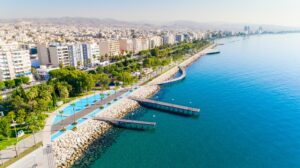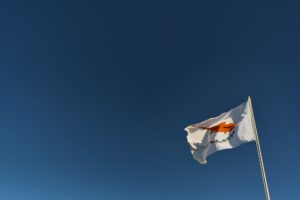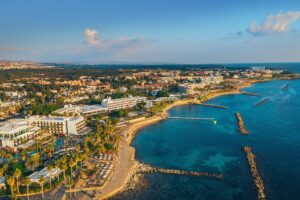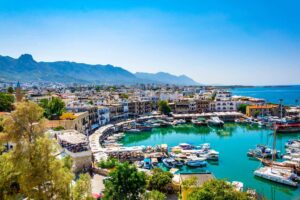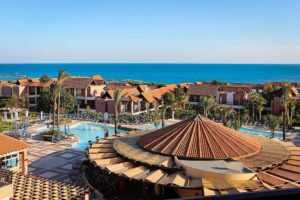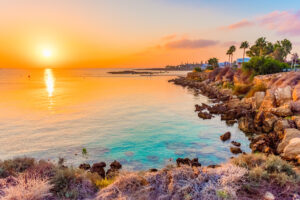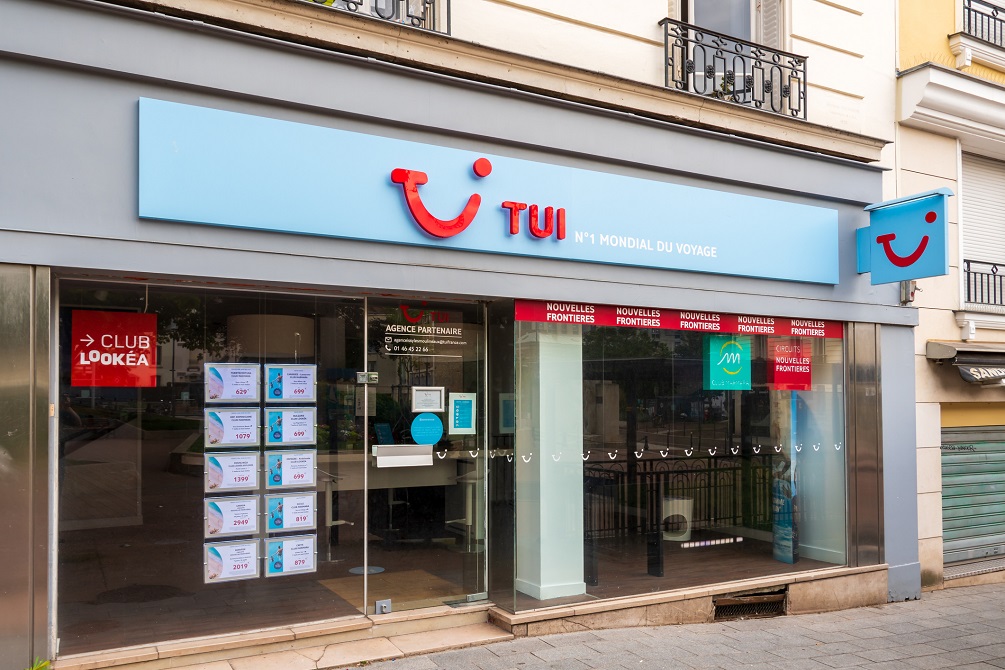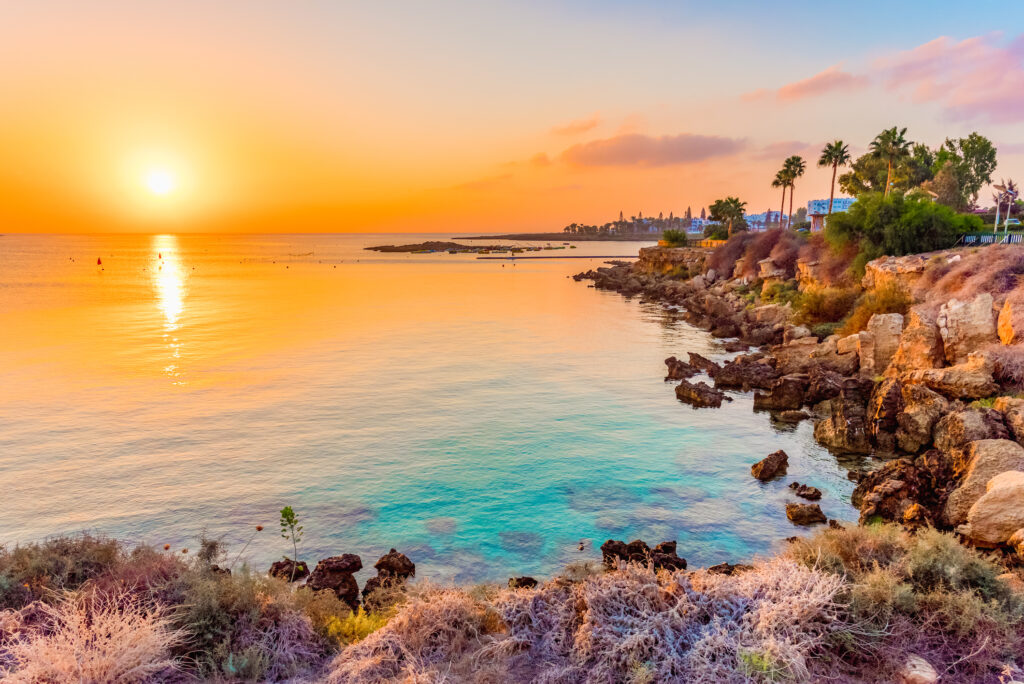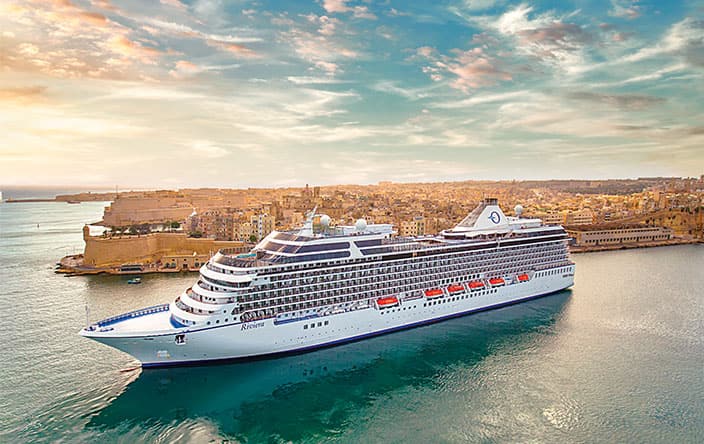Cyprus
With peaceful villages, throbbing business centers, a contemporary lifestyle, and traditional values, Cyprus is a land that abounds in contrasts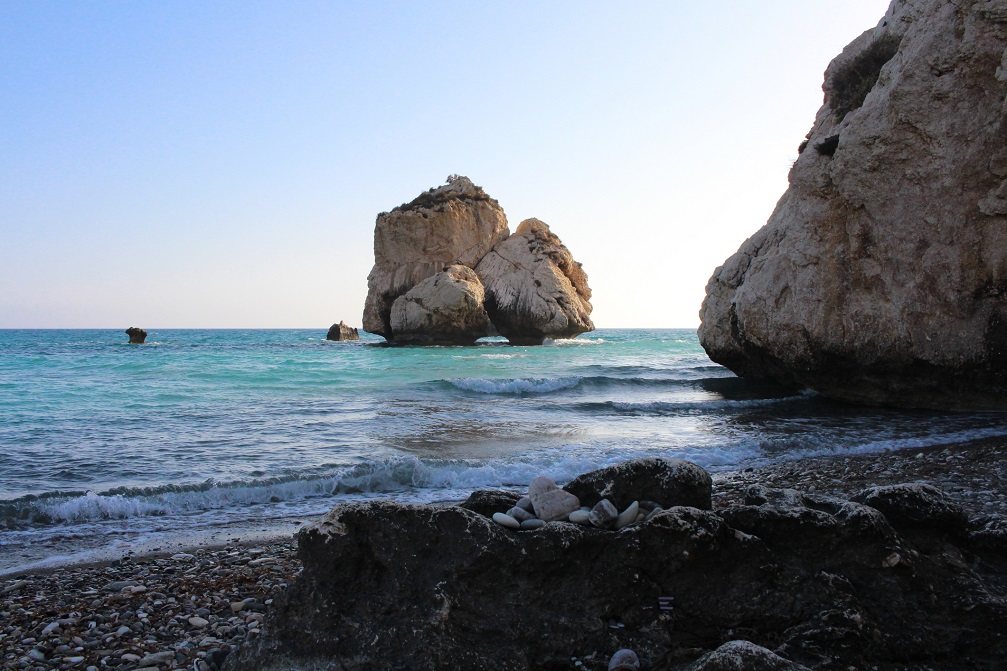
The fabled birthplace of the Goddess Aphrodite, Cyprus is the third largest island in the Mediterranean. With a coast that stretches 648 kms long, highlighted by sun-kissed sands, isolated bays, and pebbly coves, it is brimming with hidden treasures and local folklore.
Away from the coast, you’ll find hilly interiors that are suitable for cycling and hiking, with quaint villages, Orthodox churches, and twee tavernas.
Cyprus has always been at the intersection of civilization. Years of varied influences are represented in Greek temple architecture, age-old Byzantine churches, medieval castles, and Venetian structures.
When looking for places to visit in Cyprus, the choices are many.
Begin your journey at Ajios Georgios, one of the most famous architectural sights in Cyprus, dating back to the 6th century. Then head to Argos, an intriguing village in the Troodos Mountains, which is at an elevation of around 1100 meters.
Kakopetria is another captivating village with scores of vineyards and orchards. The climate is extremely pleasant, and you can take your pick from the best apples. Wine lovers should also drop by the village of Odomos, which produces the best brands of homemade wines in the country. Don’t miss a pitstop at Lofou, an ancient village with centuries-old architecture that will leave you awe-struck.
Continue your sightseeing with a stopover at Salami, where you’ll come across illustrious Roman settlements including bathhouses, markets, and other luxuries that are reminiscent of the Roman empire.
For a city escape, head to Nicosia, the capital city of Cyprus and its cultural and heritage hub.
You can’t leave without seeing the Temple of Aphrodite, one of the biggest and most majestic Greek temples, located to the southwest of the Kouklia village. It is a formidable reflection of both Greek and Roman culture and also houses a little museum that contains antiquities from the Roman and Greek periods of its settlement.
If you’re a devout Christian, you’d probably want to visit the picturesque village of Panagia. It has a profusion of monasteries, churches, basilicas, and cathedrals dedicated to the Virgin Mary.
To round off your journey, drop by Platres, a scenic winemaking village that can be traced back to the Venetian era.
The muse of poets, the jaunt of saints, and the conquest of legendary characters, Cyprus has always been at the crossroads of empires and civilizations through the years.
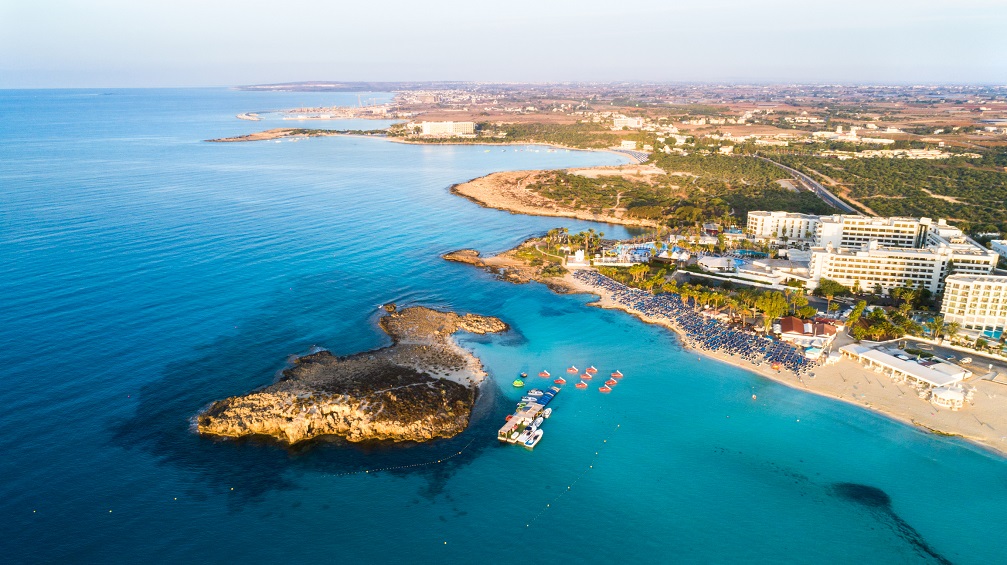


The island country of Cyprus is situated in the Mediterranean sea. It tactically lies at the intersection of trade routes connecting the continents of Asia, Africa, and Europe.
It is located to the west of Syria and to the south of Turkey.
The island has volcanic origins and hence there are plenty of hills and mountains. Eastern and Southern Cyprus are marked by extensive sandy coasts, while the North coastal belt of the island is acutely craggy with a copious amount of coves.
The main topographical features of the landscape are hilly areas and fertile grasslands, engulfed in vineyards and forests. Cyprus has two mountain ranges that run parallel to each other. Kyrenia to the North and Troodos to the South.
Almost half of the island is covered by hills, mountains, and plains that are planted with carob and olive trees, grapes, and wheat.
Cyprus has a temperate climate typical of Mediterranean areas with cool, wet winters and hot, dry summers. Summer runs from May to October and winter from December to February. It has short autumn in October-November and a short spring in March-April.
Cyprus is ideal for the summer holidays, with around 300 sunny days every year.
The temperature is determined by the elevation but average temperatures are around 10C in January and around 35C in July.
The island experiences rainfall mainly in the winter and it snows in the Troodos Mountains, usually just before Christmas.
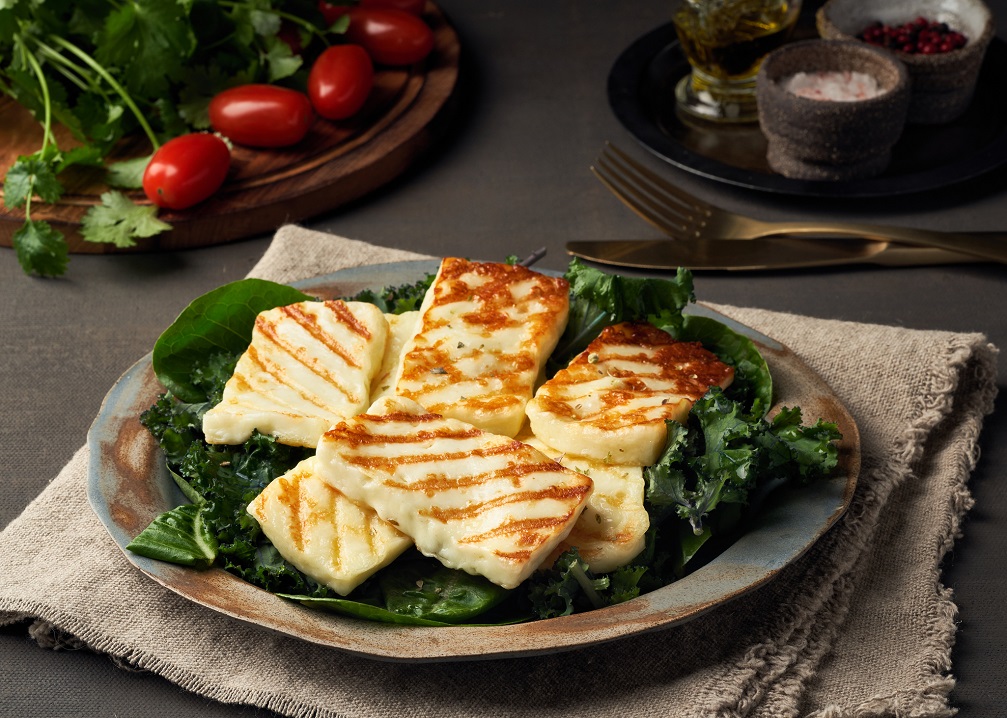


Food is taken quite seriously in Cyprus and its vast history and myriad influences have added to its gastronomy. No doubt, the proximity to the Middle East has affected its culinary choices. Its cuisine combines the best of Cyprus and Turkish flavors, but the signature food is closest to Greek cuisine.
When you travel to Cyprus, there are plenty of dishes that you must try. Halloumi is one of the most popular dishes here. A blend of goat’s and sheep’s milk is used to produce the cheese, which is then set with rennet. It is subsequently grilled or fried and served with slices of watermelon.
Koupepia, which is a mixture of rice, meat, onions, and herbs ensconced in vine leaves, is a village favorite.
Greek food finds its representation in the Souvlaki, small blocks of grilled chicken or pork on a skewer accompanied by a salad filling. A pitta of Souvlaki consists of a pocket that holds the fillings.
Kolokouthkia me ta afka which is courgettes with scrambled eggs, is served at most traditional restaurants, and is a typical Cypriot dish that accompanies other mains. Try the Makaronia tou fournou, which is another type of halloumi, garnished with dry mint. A creation of pasta tubes, minced pork, and bechamel sauce, it is served with a side of salad.
If you’re on a health kick and looking for something nutritious, tuck into the Louvi, which is a dish made of black-eyed beans and cooked veggies like courgettes and chard. Another dish that you can’t miss out on is the Kolokasi. It is a vegetable that grows only in Cyprus and a few other Greek islands. Other staples are Pilafi pourgouri, a preparation of bulgar wheat, tomato juice, and onion and Trachanas which is prepared with goat milk, salt, wheat, and then made into dry chunks.
For dessert, feast on some Loukoumades, which are golden brown deep-fried balls, dipped in honey
Cyprus is a pretty casual kind of place. So, don’t carry anything too formal. The beaches are the main attraction for most visitors. So beachwear, a hat, flip flops, and sunglasses are a must.
The coastline is somewhat rocky, so get a pair of driving shoes to cover your feet.
Women should save their sarongs and shorts for the beach, and wear loose flowing clothes, t-shirts, shirts, and sundresses elsewhere. Accessorize with a versatile piece of clothing like the pashmina. You can use it to cover your bare legs and shoulders while visiting any religious landmarks.
Men can wear shirts, shorts, polos, and trousers.
Carry comfortable footwear for walking during the day and ladies can don a pair of heels in the evening.
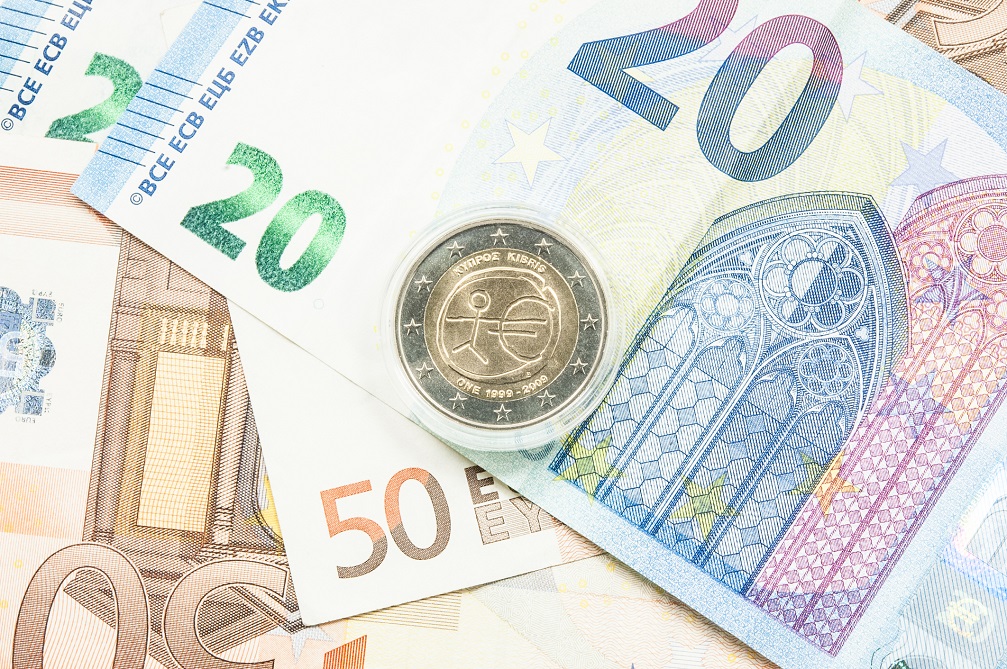


The currency of Cyprus is the Euro and one Euro is sub-divided into 100 cents.
Currency can be exchanged at all banks in Cyprus and in some hotels as well. Your ATMs, credit or debit cards can be easily used all across Cyprus.
You can use your credit card in restaurants and superstores. However, while larger venues in North Cyprus accept cards, you should also carry cash to be on the safe side.
ATMs are widely found all over Cyprus at banks, hotels and supermarkets. In bigger tourist areas and towns, you’ll find cash points in close proximity.
The two main languages spoken in Cyprus are Greek and Turkish. English is the second language, as the island was a British colony for many years.
While the official languages of Standard Modern Greek and Standard Turkish are the ones taught in schools and colleges, a great part of the populace speaks the vernacular languages of Cypriot Greek and Cypriot Turkish. Cypriot Greek is quite different from Standard Modern Greek.
Armemian, Cypriot Arabic and Kurbetcha are the primary minority languages spoken in Cyprus. However, English is widely spoken in Cyprus and you shouldn’t have a problem finding your way around.
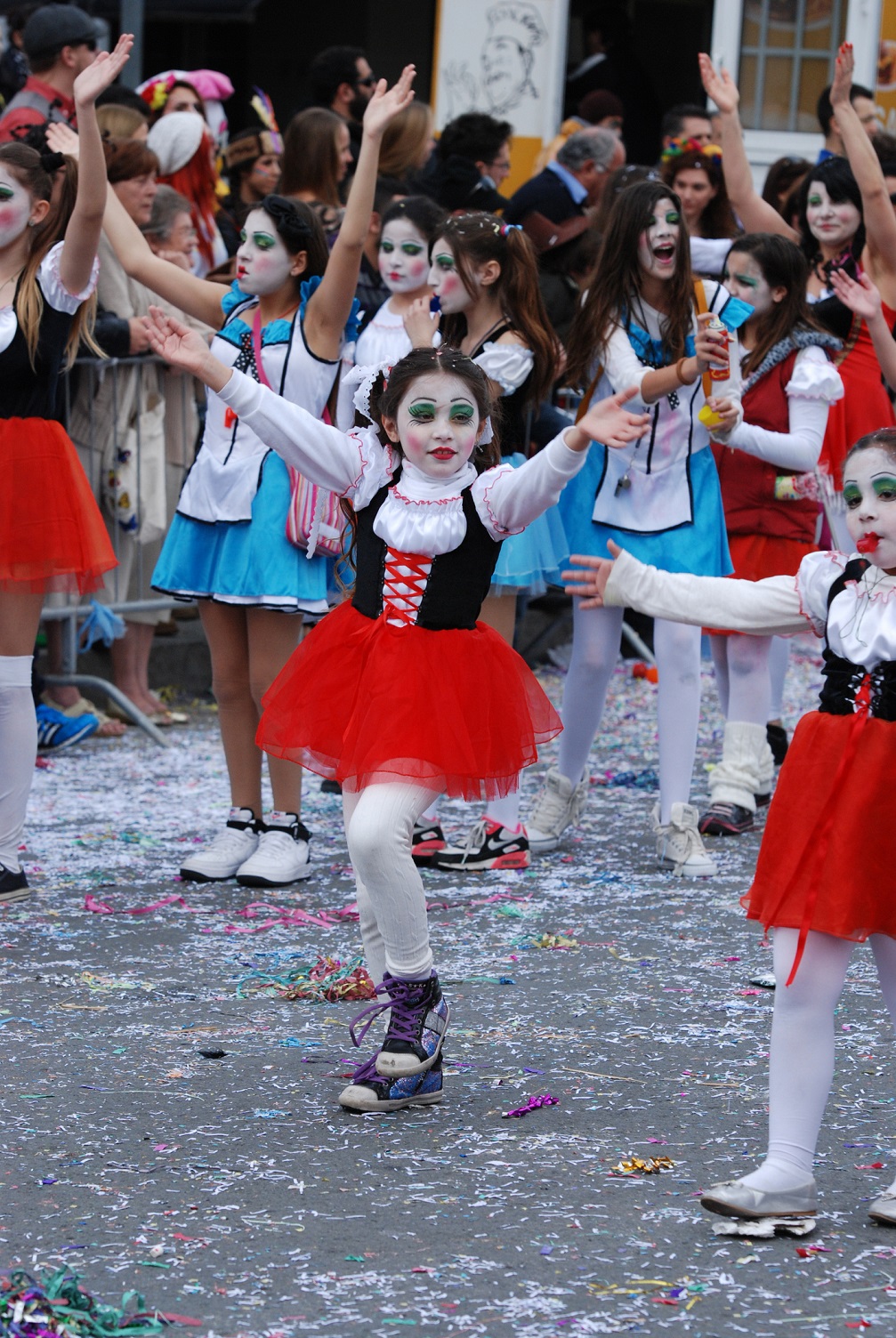


Cypriot culture is a product of its 10,000 years of history. Art, music, theatre, dance, and literature are given particular importance.
There are myriad religious customs and traditions that date right back to the inception of Greek Orthodoxy. These are displayed during Easter, the festival of the flood, Christmas, Saint Paul’s feast, and other religious celebrations.
Many festivities in Cyprus are associated with wine, music, and dancing. For instance, the Wine Festival of Limassol, which takes place in the month of September, has free-flowing wine for around 10 to 12 days. So, if you’re visiting in September, add Limassol to your list of places to visit in Cyprus.
Dancing in a group, accompanied by flute or violin music, attired in traditional Cypriot costumes is the usual practice in Cyprus.
When you travel to Cyprus, be prepared for the warm hospitality of the Cypriots, who are well known for their welcoming and friendly nature.
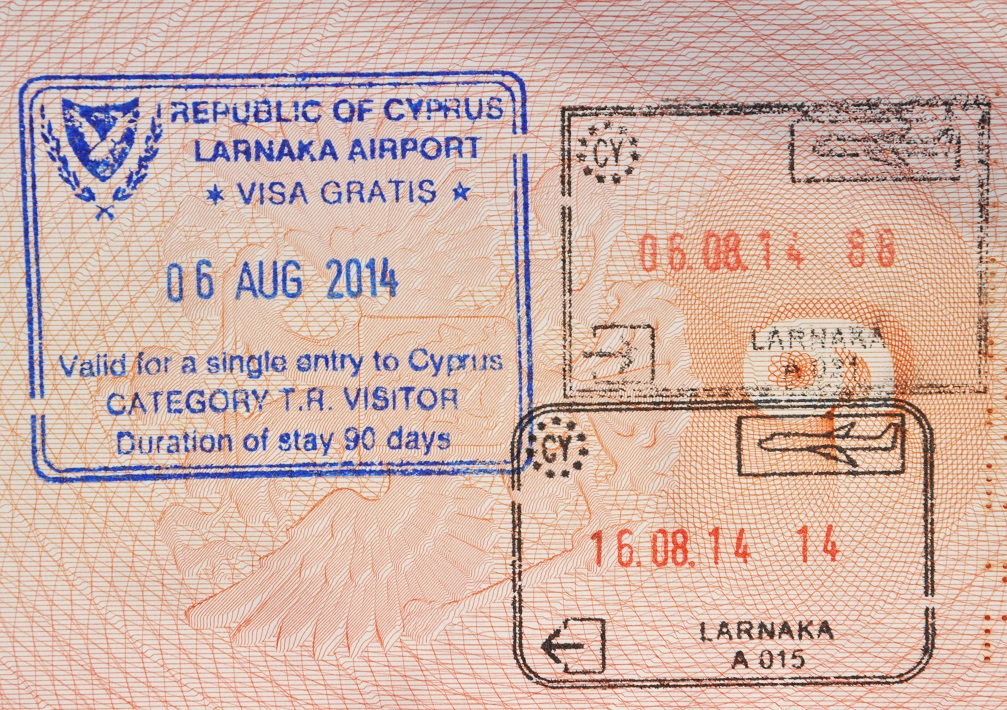


UK passport holders can travel to Cyprus without a visa for a stay up to 90 days in a 180-day period.
At the border control in Cyprus, your passport may be stamped when you enter and exit. The time spent in the north of Cyprus may be considered by The Republic of Cyprus authorities while calculating the 90-day visa-free total.
Check the validity of your passport before you travel to Cyprus. You should have at least 6 months of validity left when you enter Cyprus.
If you’re visiting the north of Cyprus, your passport should have at least a 6-month validity from your entry date in the north.
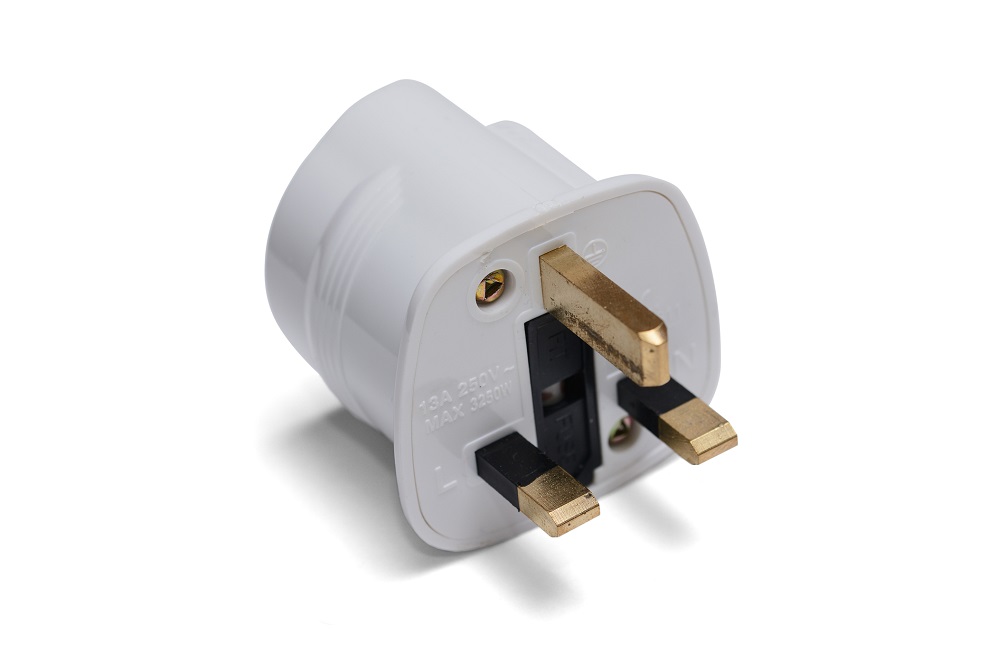


The standard voltage in Cyprus is 240V and the standard frequency is 50 Hz.
The plug type in Cyprus is the G type. UK travelers will be able to use their electric appliances in Cyprus as G types are the common plug types used in the UK.
The voltage in the UK is 230V, while that of Cyprus is 240V. The voltage doesn’t match exactly, but the difference can be usually absorbed by electronics. It is quite safe to plug in your devices from the UK. If you have particular concerns about a special apparatus like a medical appliance, you can seek further technical assistance.
Check the fine print on your appliance. A dual voltage rated device that has ‘INPUT: 110-240V’ mentioned on it, means that you won’t need a converter, because the standard voltage in Cyprus is 240V and it is within the 110-240V range.



The fabled birthplace of the Goddess Aphrodite, Cyprus is the third largest island in the Mediterranean. With a coast that stretches 648 kms long, highlighted by sun-kissed sands, isolated bays, and pebbly coves, it is brimming with hidden treasures and local folklore.
Away from the coast, you’ll find hilly interiors that are suitable for cycling and hiking, with quaint villages, Orthodox churches, and twee tavernas.
Cyprus has always been at the intersection of civilization. Years of varied influences are represented in Greek temple architecture, age-old Byzantine churches, medieval castles, and Venetian structures.
When looking for places to visit in Cyprus, the choices are many.
Begin your journey at Ajios Georgios, one of the most famous architectural sights in Cyprus, dating back to the 6th century. Then head to Argos, an intriguing village in the Troodos Mountains, which is at an elevation of around 1100 meters.
Kakopetria is another captivating village with scores of vineyards and orchards. The climate is extremely pleasant, and you can take your pick from the best apples. Wine lovers should also drop by the village of Odomos, which produces the best brands of homemade wines in the country. Don’t miss a pitstop at Lofou, an ancient village with centuries-old architecture that will leave you awe-struck.
Continue your sightseeing with a stopover at Salami, where you’ll come across illustrious Roman settlements including bathhouses, markets, and other luxuries that are reminiscent of the Roman empire.
For a city escape, head to Nicosia, the capital city of Cyprus and its cultural and heritage hub.
You can’t leave without seeing the Temple of Aphrodite, one of the biggest and most majestic Greek temples, located to the southwest of the Kouklia village. It is a formidable reflection of both Greek and Roman culture and also houses a little museum that contains antiquities from the Roman and Greek periods of its settlement.
If you’re a devout Christian, you’d probably want to visit the picturesque village of Panagia. It has a profusion of monasteries, churches, basilicas, and cathedrals dedicated to the Virgin Mary.
To round off your journey, drop by Platres, a scenic winemaking village that can be traced back to the Venetian era.
The muse of poets, the jaunt of saints, and the conquest of legendary characters, Cyprus has always been at the crossroads of empires and civilizations through the years.



The island country of Cyprus is situated in the Mediterranean sea. It tactically lies at the intersection of trade routes connecting the continents of Asia, Africa, and Europe.
It is located to the west of Syria and to the south of Turkey.
The island has volcanic origins and hence there are plenty of hills and mountains. Eastern and Southern Cyprus are marked by extensive sandy coasts, while the North coastal belt of the island is acutely craggy with a copious amount of coves.
The main topographical features of the landscape are hilly areas and fertile grasslands, engulfed in vineyards and forests. Cyprus has two mountain ranges that run parallel to each other. Kyrenia to the North and Troodos to the South.
Almost half of the island is covered by hills, mountains, and plains that are planted with carob and olive trees, grapes, and wheat.
Cyprus has a temperate climate typical of Mediterranean areas with cool, wet winters and hot, dry summers. Summer runs from May to October and winter from December to February. It has short autumn in October-November and a short spring in March-April.
Cyprus is ideal for the summer holidays, with around 300 sunny days every year.
The temperature is determined by the elevation but average temperatures are around 10C in January and around 35C in July.
The island experiences rainfall mainly in the winter and it snows in the Troodos Mountains, usually just before Christmas.



Food is taken quite seriously in Cyprus and its vast history and myriad influences have added to its gastronomy. No doubt, the proximity to the Middle East has affected its culinary choices. Its cuisine combines the best of Cyprus and Turkish flavors, but the signature food is closest to Greek cuisine.
When you travel to Cyprus, there are plenty of dishes that you must try. Halloumi is one of the most popular dishes here. A blend of goat’s and sheep’s milk is used to produce the cheese, which is then set with rennet. It is subsequently grilled or fried and served with slices of watermelon.
Koupepia, which is a mixture of rice, meat, onions, and herbs ensconced in vine leaves, is a village favorite.
Greek food finds its representation in the Souvlaki, small blocks of grilled chicken or pork on a skewer accompanied by a salad filling. A pitta of Souvlaki consists of a pocket that holds the fillings.
Kolokouthkia me ta afka which is courgettes with scrambled eggs, is served at most traditional restaurants, and is a typical Cypriot dish that accompanies other mains. Try the Makaronia tou fournou, which is another type of halloumi, garnished with dry mint. A creation of pasta tubes, minced pork, and bechamel sauce, it is served with a side of salad.
If you’re on a health kick and looking for something nutritious, tuck into the Louvi, which is a dish made of black-eyed beans and cooked veggies like courgettes and chard. Another dish that you can’t miss out on is the Kolokasi. It is a vegetable that grows only in Cyprus and a few other Greek islands. Other staples are Pilafi pourgouri, a preparation of bulgar wheat, tomato juice, and onion and Trachanas which is prepared with goat milk, salt, wheat, and then made into dry chunks.
For dessert, feast on some Loukoumades, which are golden brown deep-fried balls, dipped in honey
Cyprus is a pretty casual kind of place. So, don’t carry anything too formal. The beaches are the main attraction for most visitors. So beachwear, a hat, flip flops, and sunglasses are a must.
The coastline is somewhat rocky, so get a pair of driving shoes to cover your feet.
Women should save their sarongs and shorts for the beach, and wear loose flowing clothes, t-shirts, shirts, and sundresses elsewhere. Accessorize with a versatile piece of clothing like the pashmina. You can use it to cover your bare legs and shoulders while visiting any religious landmarks.
Men can wear shirts, shorts, polos, and trousers.
Carry comfortable footwear for walking during the day and ladies can don a pair of heels in the evening.



The currency of Cyprus is the Euro and one Euro is sub-divided into 100 cents.
Currency can be exchanged at all banks in Cyprus and in some hotels as well. Your ATMs, credit or debit cards can be easily used all across Cyprus.
You can use your credit card in restaurants and superstores. However, while larger venues in North Cyprus accept cards, you should also carry cash to be on the safe side.
ATMs are widely found all over Cyprus at banks, hotels and supermarkets. In bigger tourist areas and towns, you’ll find cash points in close proximity.
The two main languages spoken in Cyprus are Greek and Turkish. English is the second language, as the island was a British colony for many years.
While the official languages of Standard Modern Greek and Standard Turkish are the ones taught in schools and colleges, a great part of the populace speaks the vernacular languages of Cypriot Greek and Cypriot Turkish. Cypriot Greek is quite different from Standard Modern Greek.
Armemian, Cypriot Arabic and Kurbetcha are the primary minority languages spoken in Cyprus. However, English is widely spoken in Cyprus and you shouldn’t have a problem finding your way around.



Cypriot culture is a product of its 10,000 years of history. Art, music, theatre, dance, and literature are given particular importance.
There are myriad religious customs and traditions that date right back to the inception of Greek Orthodoxy. These are displayed during Easter, the festival of the flood, Christmas, Saint Paul’s feast, and other religious celebrations.
Many festivities in Cyprus are associated with wine, music, and dancing. For instance, the Wine Festival of Limassol, which takes place in the month of September, has free-flowing wine for around 10 to 12 days. So, if you’re visiting in September, add Limassol to your list of places to visit in Cyprus.
Dancing in a group, accompanied by flute or violin music, attired in traditional Cypriot costumes is the usual practice in Cyprus.
When you travel to Cyprus, be prepared for the warm hospitality of the Cypriots, who are well known for their welcoming and friendly nature.



UK passport holders can travel to Cyprus without a visa for a stay up to 90 days in a 180-day period.
At the border control in Cyprus, your passport may be stamped when you enter and exit. The time spent in the north of Cyprus may be considered by The Republic of Cyprus authorities while calculating the 90-day visa-free total.
Check the validity of your passport before you travel to Cyprus. You should have at least 6 months of validity left when you enter Cyprus.
If you’re visiting the north of Cyprus, your passport should have at least a 6-month validity from your entry date in the north.



The standard voltage in Cyprus is 240V and the standard frequency is 50 Hz.
The plug type in Cyprus is the G type. UK travelers will be able to use their electric appliances in Cyprus as G types are the common plug types used in the UK.
The voltage in the UK is 230V, while that of Cyprus is 240V. The voltage doesn’t match exactly, but the difference can be usually absorbed by electronics. It is quite safe to plug in your devices from the UK. If you have particular concerns about a special apparatus like a medical appliance, you can seek further technical assistance.
Check the fine print on your appliance. A dual voltage rated device that has ‘INPUT: 110-240V’ mentioned on it, means that you won’t need a converter, because the standard voltage in Cyprus is 240V and it is within the 110-240V range.
Travel related news, information and inspirational articles and videos for travellers booking flights or holidays to Cyprus. Ask questions about travel in Cyprus and get answers from Cyprus experts
NEWS
Inspiration, Information and Travel Guides
MEET THE Cyprus EXPERTS
If you are looking to book a holiday to Cyprus or needs some help and advice planning travel to Cyprus then contact one of the UK based independent travel agents that specialise in Cyprus itineraries.
FEATURED VIDEOS
Your Travel Questions Answered
Ask any travel related question and get an answer from one of our experts that will provide you with an answer from their personal experience
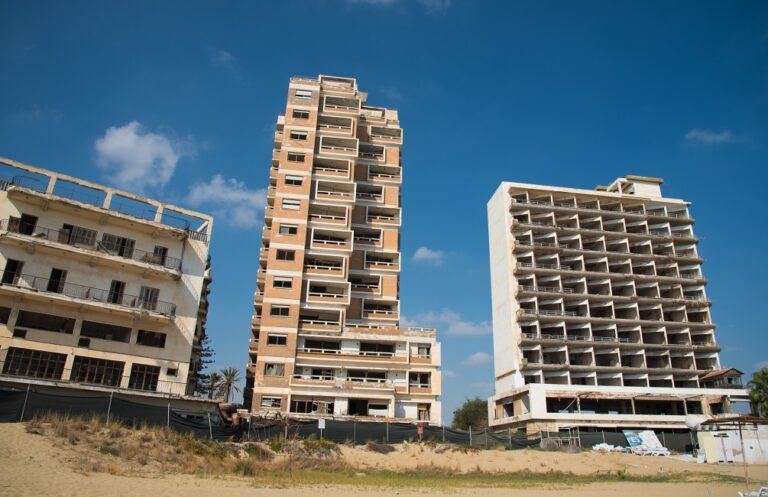

I have been researching ghost towns and wanted to find a unique town to visit. A friend of mine suggested the ghost town of Varosha in Cypress. Could you give me more details about this town?






